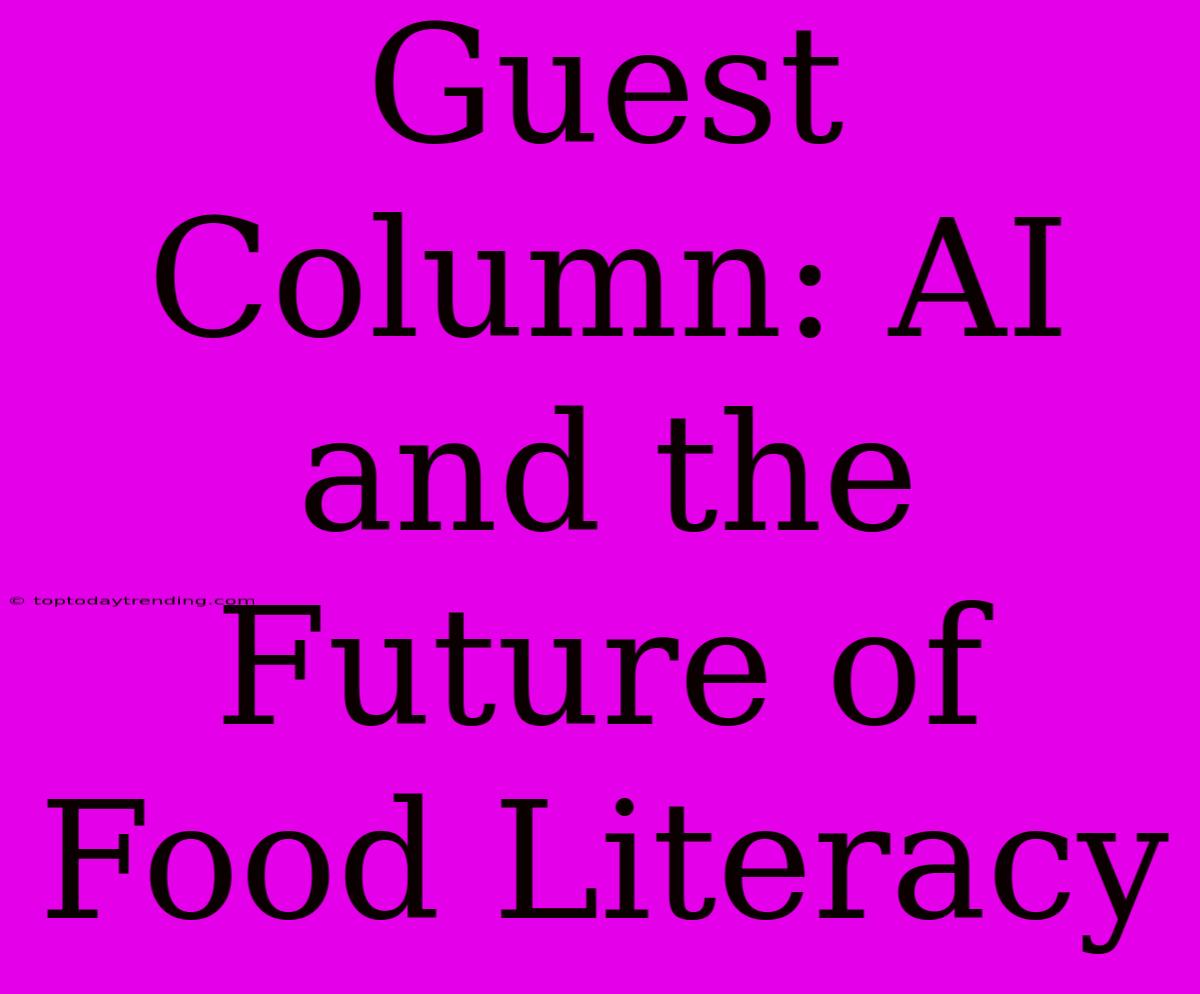Guest Column: AI and the Future of Food Literacy
The rise of artificial intelligence (AI) is revolutionizing many industries, and food is no exception. AI's ability to analyze vast amounts of data and identify patterns has the potential to transform how we understand, produce, and consume food. But how will this impact food literacy, the knowledge and skills needed to make informed food choices?
AI-Powered Food Literacy Tools
AI can be used to create powerful food literacy tools, empowering individuals to make healthier and more sustainable choices. Here are some potential applications:
1. Personalized Nutrition Recommendations: AI algorithms can analyze dietary habits, health conditions, and preferences to provide customized dietary recommendations. This can help individuals achieve specific health goals, like weight management or managing chronic diseases, while ensuring they get the nutrients they need.
2. Food Waste Reduction: AI can predict food demand, optimize inventory management, and identify potential food waste hotspots. This data can be used to reduce food waste at all levels, from farms to grocery stores to individual households.
3. Transparency and Traceability: AI can track food products from farm to table, ensuring transparency and traceability throughout the supply chain. Consumers can access information about the origin, production practices, and nutritional content of their food, leading to more informed purchasing decisions.
4. Educational Resources: AI-powered chatbots and virtual assistants can provide interactive and personalized food education resources. These tools can answer questions, provide recipes, and offer tips on healthy eating, making learning about food more engaging and accessible.
Challenges and Opportunities
While AI holds tremendous potential for enhancing food literacy, there are challenges that need to be addressed:
1. Accessibility and Equity: Ensuring that everyone has access to AI-powered food literacy tools is crucial. Digital literacy gaps and unequal access to technology can exacerbate existing inequalities in food knowledge and choices.
2. Data Privacy and Security: The use of personal data for personalized nutrition recommendations raises concerns about privacy and security. Robust measures are needed to protect user data and ensure responsible use of AI.
3. Ethical Considerations: AI algorithms can be biased, reflecting the prejudices embedded in the data they are trained on. It is essential to ensure fairness and prevent AI from perpetuating existing food inequalities.
The Future of Food Literacy: A Collaborative Effort
AI is not a magic bullet; it's a tool that needs to be used responsibly and strategically. To maximize its potential for food literacy, a collaborative approach is needed:
- Government and NGOs: Should invest in research and development of AI-powered food literacy tools, focusing on equitable access and ethical considerations.
- Food Industry: Can leverage AI to promote transparency, sustainability, and healthy choices in their operations.
- Individuals: Should embrace new technologies and actively engage with AI-powered resources to improve their food knowledge and choices.
By embracing AI and addressing its challenges, we can create a future where everyone has the knowledge and resources to make healthy, sustainable, and informed food choices.

